
Why Xi Jinping cares so much about ending poverty in China: the political significance behind the campaign
National goal of becoming a ‘moderately affluent society’ by 2021 has prompted a serious drive to improve the lot of poorer households
Yao Shiwei, a migrant worker from southwestern Guizhou province, had been feeling at the end of his tether for quite some time.
He was seriously injured in a car accident two years ago when he was delivering construction materials in Hainan and broke both his legs. His wife visited him in hospital on the night of the accident but she left him for good after learning how severe his injuries were and how big the hospital bills would be.
Months later, after Yao left Hainan with two steel rods in his legs, he underwent the two-hour journey over zigzagging mountain roads to his home in Cizhu village only to find that his small house built from mud had collapsed and the roof was missing.
The 47-year-old had to take his eight-year-old son to live with his elder brother, who had just built a house made from bricks. He lost his only source of income and the only thing he could do for his son was cook meals.
Just when Yao was feeling desperate, he was told he would get 400 yuan (US$60) a month in low-income subsidies and a flat for free in the city of Bijie, three hours’ drive from his mountain home, as part of the government’s efforts to help the impoverished.
“I feel lucky after all and am looking forward to moving into the new house,” Yao said. “My son can receive better education in the city and I can find a job that involves manual labour. It will be a new start for us.”
Yao’s family is among hundreds of thousands in Guizhou, and millions more in the whole country, who have been living in poverty – officially defined as having an annual income of less than 2,300 yuan.
They stand to benefit from the country’s strongest poverty-reduction campaign so far.
Analysts say the campaign is largely driven by political motivations and its significance and the amount of resources allocated to fund it should be a strong guarantee of success.
Beijing has been engaged in poverty-alleviation work since 1978 but it was never recognised as one of the top priorities of the Communist Party until 2015, when it vowed to wipe out poverty in China by 2020.
The significance attached to poverty alleviation is closely entwined with the party’s grand mission – to realise the goal of building a “moderately affluent society” by 2021, the 100th anniversary of the founding of the party.
“For the Communist Party, the campaign is vital to its ruling status because it promised to bring the good life to the poor who supported it back to the days when it was first established,” said Professor Hu Xingdou, a Beijing Institute of Technology economist.
“Now nearly seven decades after the founding the new China and three decades after the reform and opening up, some parts of country are still making little income.
“It matters for the Communist Party to show the public, especially the rural poor, that they will benefit from economic development after all.”
Three decades of rapid development has made China the second-largest economy in the world and many of its residents unprecedentedly affluent, but at the same time it has created a yawning wealth gap.
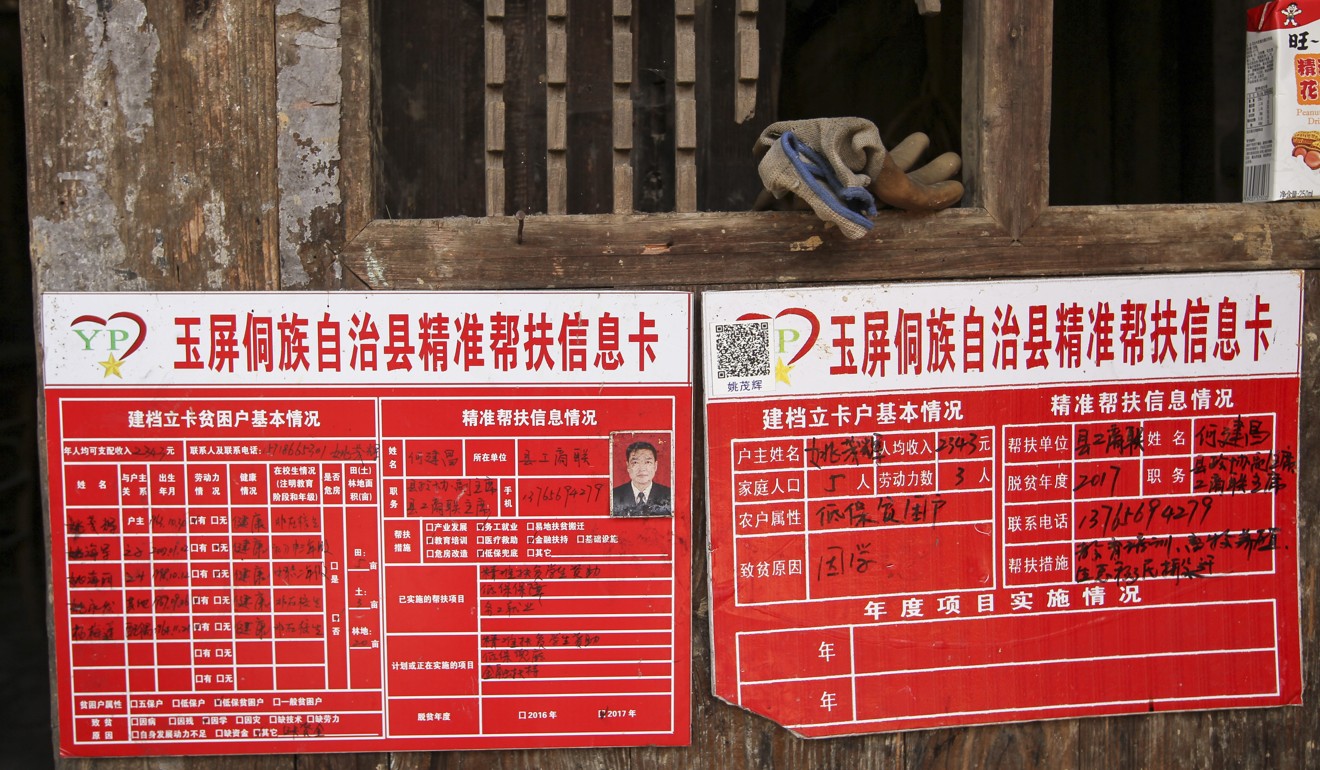
Many remote rural areas, especially those once deemed revolutionary bases such as Guizhou province, are still struggling on the poverty line.
It matters to President Xi Jinping in terms of expanding his popularity and support, especially when the public are losing interest in his anti-corruption campaign.
“This will be one of Xi’s political legacies – building a moderately affluent society during his presidency, especially when the past administration missed the target to realise that by 2000,” Hu said.
Gu Su, a political analyst with Nanjing University, said the campaign was also about consolidating the party’s control and leadership, even in remote areas.
“There may not even be party activities any more. A village chief is selected and that is all. By sending officials down to the most grass-roots and remotest areas, the party is extending its control over the local organisations,” Gu said.
The drive may also be personal for Xi, who once said: “I have been working on poverty-alleviation work in recent years because I came from a poor area myself.”
He made the comments during his return to the village of Liangjiahe in Shaanxi province, where he spent seven years working with rural peasants from 1969.
Xi, who was 16 at the time, experienced hunger and food shortages so serious that villagers had to leave home to beg for food.
In April, Xi was elected as a Guizhou delegate to an important party congress and Xinhua interpreted that as a demonstration of the importance he attached to the fight against poverty in the province.
Guizhou, known for its mountains, highlands and large ethnic minority populations, is home to the largest proportion of people living below the poverty line.
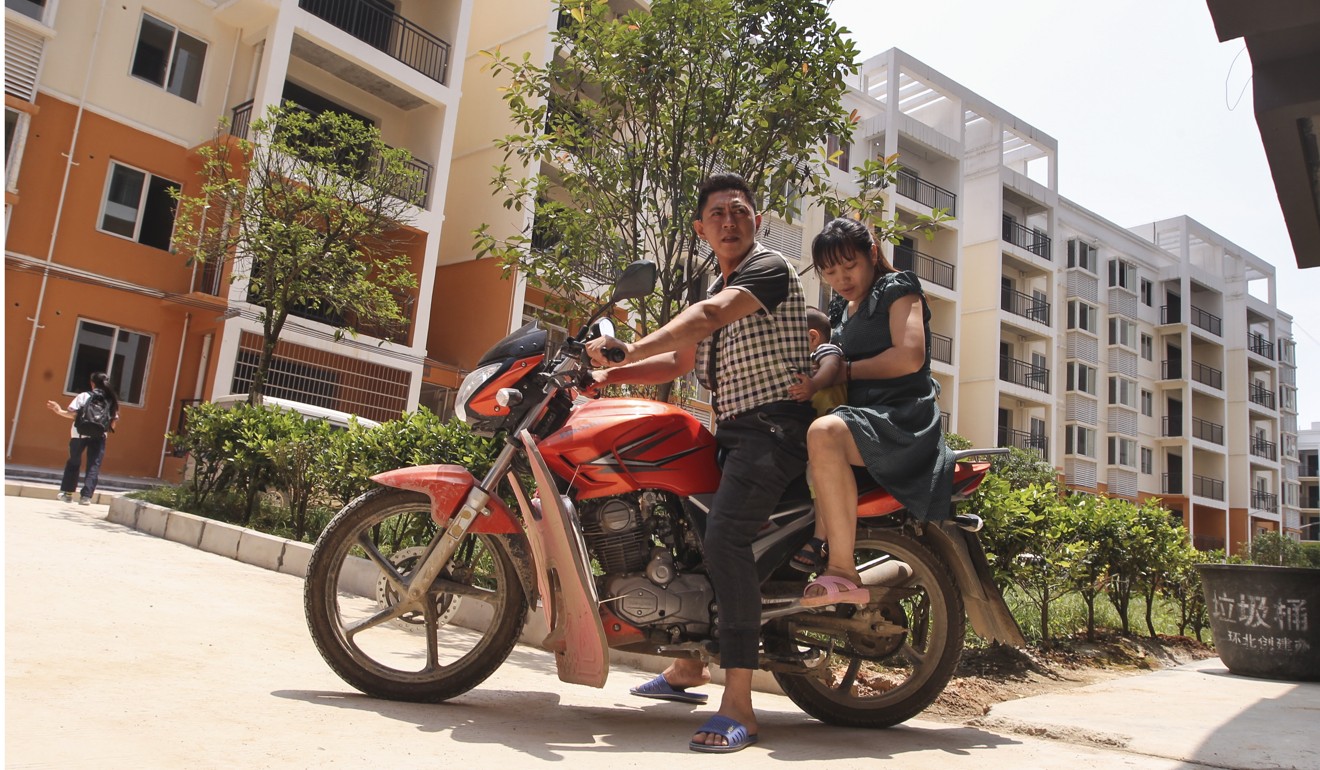
Former Guizhou party secretary Chen Miner, a close political ally of Xi, identified poverty alleviation there as key concern in attempt to build a moderately prosperous society by 2020, and made poverty reduction one of the three key strategies for developing the province.
Billions of yuan have been poured into the area and Guizhou has been held up by the central government as a model for measures to alleviate poverty.
In October 2015, when he launched the poverty-reduction drive, Xi said there were still more than 70 million people living in poverty in China.
The policy of “poverty alleviation with precision”, involving targeted measures to help people lift themselves out of poverty, marks a clear strategic change from the course followed over the previous three decades.
The new strategy requires measures to be targeted at people and industries, rather than giving poor areas funding in the hope that local families would eventually benefit.
Yao Maohui and his family, from Changhua village in Tongren, Guizhou, are part of the programme. A notice was put on their home to identify who there was a target for the poverty-reduction measures. It also lists the causes of their situation, the measures that would be taken to lift them out of poverty and when that goal would be met.
The notice also names an official responsible for helping the family, giving that official’s title, picture and mobile phone number.
Yao Maohui said the designated official visited several times last year and brought food and stationery for the locals.
People from some areas not considered suitable for habitation will be moved to more developed areas. Officials will also put a social security net in place to cover the remaining 20 million-plus poor people who are disabled or unable to work.
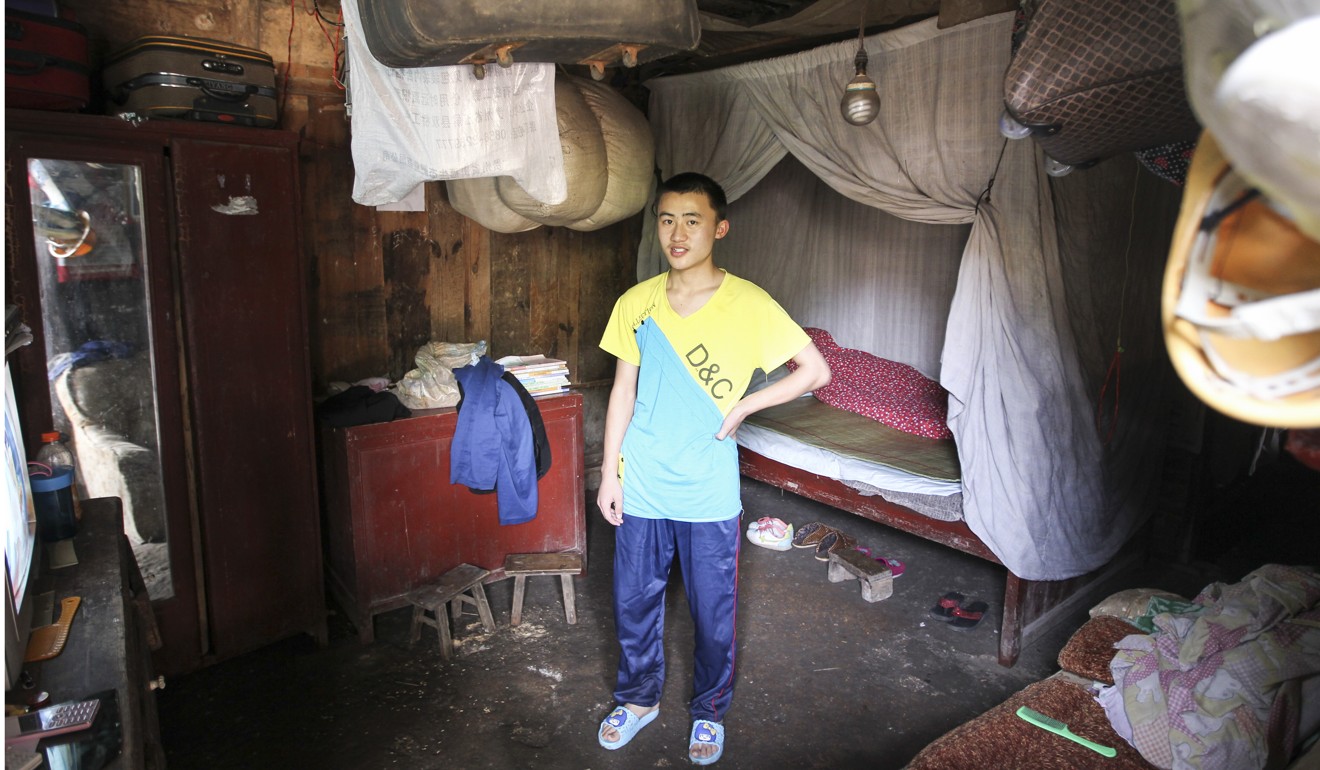
Zeng Fanfen, 46, moved to the Xiangtanglong resettlement area in Tongren in eastern Guizhou in February after her house in Damian village in Songtao county collapsed and the area was deemed too remote to develop.
Sitting in a three-bedroom flat furnished with a sofa, bed, basic cookware in the kitchen and some electrical appliances, Zeng said the new home was a much safer and more hygienic place to raise her 10-year-old daughter and five-year-old son. However, she expressed concern about their sources of income.
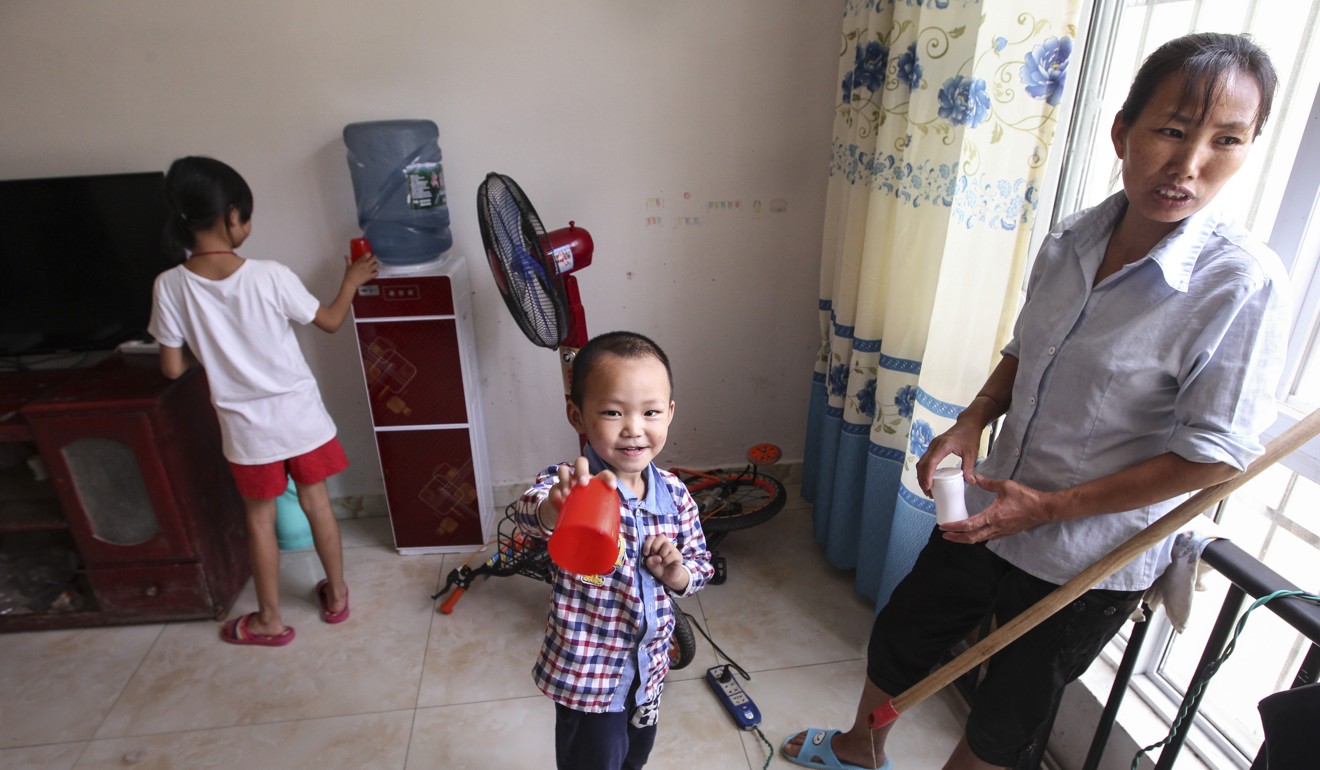
Her husband, who has a job installing air conditioning units, leaves home at 6am, returning at 7pm for a wage of 1,500 yuan a month.
“When I was in the countryside I was always busy with farming jobs, now that I am in the city I can only take care of my two children. I don’t have a job or income, it made me panic,” Zeng said.
“I used to feed my family with the things I grew, but now I pay for everything. The cost of living is high. Now we enjoy the government benefits of free electricity and gas, but I feel very insecure without a job.”
Despite the much-trumpeted claims of “poverty-alleviation with precision”, villagers still complained of corruption and claimed only those close to village officials would benefit.
Tang Shixian, 58, from Dahua village in Tongren, was bitter about not getting any benefits from the poverty-reduction campaign.
“I took medicine every day for my illness. I borrowed more than 20,000 yuan to have surgery last year,” she said, showing a long scar across her belly. “I collected mushrooms after it rained to sell them by the road. Sometimes I made 30 yuan a day and sometimes nothing.
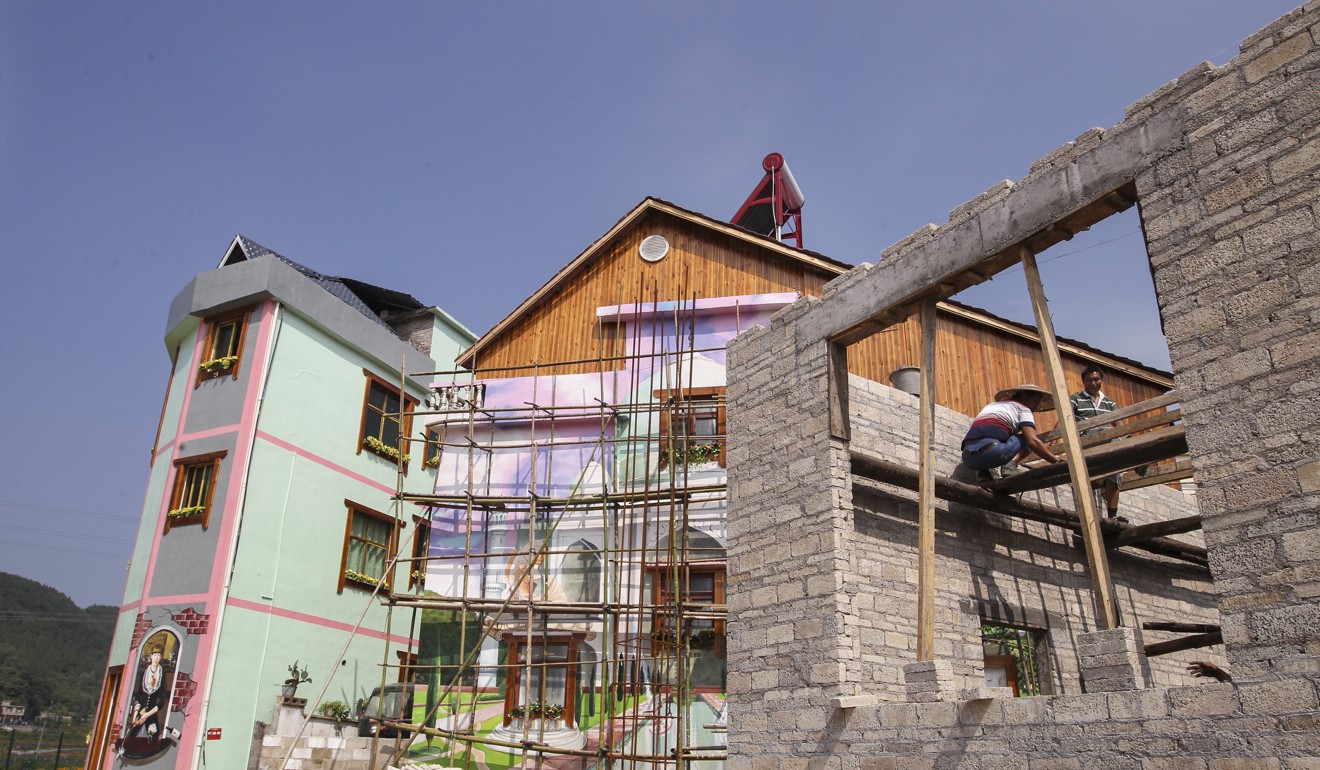
“I was told I would not be eligible because my house was built of bricks, but I borrowed money to build the house and what about me taking medicine every day?”
The current poverty-alleviation plan is supposed to benefit only those who need it. One popular measure for determining this is to check whether the family has a new house, how much grain they have in stock, whether anyone in the family is workingand whether there are children that need financial support to go to school.
Having a regular job or owning a new house, even if it was paid for with borrowed money, might disqualify a family from receiving poverty relief.
Zhai Sifang, 60, from Longtan village in Bijie, said village officials wanted her to invest her poverty-reduction money in a pig farm last year. She refused and never saw any sign of the money.
She remains in her six-decades-old wooden house, which leaks when it rains, and lives on the crops she grows and occasional remittances sent by her daughter.
“I sought no help from anybody. I count on my own,” Zhai said.
Professor He Xuefeng, a sociologist at the Central China Science and Technology University,,said the unprecedented resources allocated to poverty reduction meant the 2020 target would be hit.
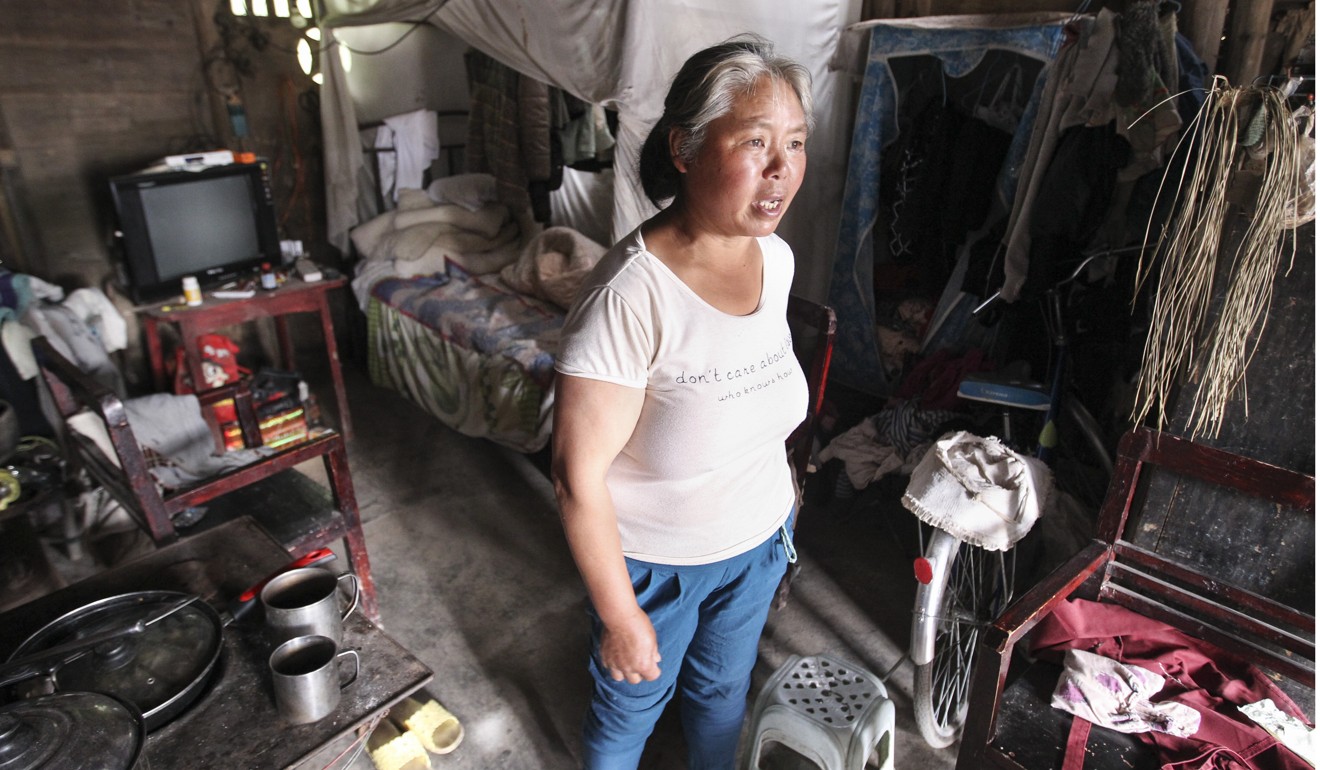
However, he said there would be a disparity between those who benefit greatly and those who receive little or nothing.
Those who were not relocated to a better house and those who worked hard and borrowed money to build a house would feel they were unfairly treated.
“It’s a phenomenon that counties all over China wish to be classified as a poverty county for the special benefits. This is a challenge for the poverty-reduction work,” He added.
“[People] should not count on the government to provide everything. The labour market has been stable and traditionally one family would at least meet their basic needs with one parent working.”
Wu Enyuan, from the Chinese Academy of Social Sciences, said any government project would make some people happy and leave others feeling dissatisfied, but added: “I think overall people will appreciate the poverty-alleviation efforts.

